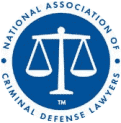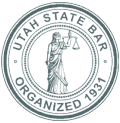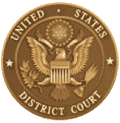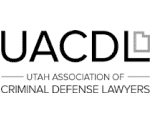Recent Blog Posts
Can You Refuse a Field Sobriety Test in Utah?
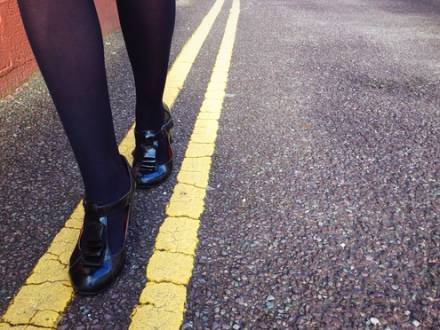 You can refuse a field sobriety test during a DUI stop in Utah. However, refusing does not always mean you avoid consequences. Police officers may still arrest you based on other signs of impairment, and your decision can affect what happens next in your case.
You can refuse a field sobriety test during a DUI stop in Utah. However, refusing does not always mean you avoid consequences. Police officers may still arrest you based on other signs of impairment, and your decision can affect what happens next in your case.
If you are facing a DUI charge, understanding your rights can help you make informed decisions. Speaking with Salt Lake City, UT DUI defense lawyers as early as possible can help you protect those rights.
What Is a Field Sobriety Test?
A field sobriety test is a group of physical and mental exercises police use during a traffic stop. These tests help officers decide whether a driver may be impaired.
3 Ways to Fight a Statutory Rape Charge in Utah
 Being accused of a sex-related offense where age plays a factor can be frightening and overwhelming, especially when the people involved believed the relationship was consensual. As of 2026, Utah law has strict age-based rules that do not always align with common assumptions about consent or intent. These rules play a major role in how charges are filed and what legal options may be available to defend against them.
Being accused of a sex-related offense where age plays a factor can be frightening and overwhelming, especially when the people involved believed the relationship was consensual. As of 2026, Utah law has strict age-based rules that do not always align with common assumptions about consent or intent. These rules play a major role in how charges are filed and what legal options may be available to defend against them.
If you are facing these allegations, our Davis County, UT sex crimes defense lawyers can explain how Utah’s age rules apply to your situation.
What Is Considered Statutory Rape Under Utah Law?
According to a 2025 Utah age-of-consent overview, minors under 14 can never legally consent to sexual activity. Minors aged 16 or 17 cannot legally consent to sex with someone who is seven or more years older. Utah law does not always use the phrase "statutory rape," but it criminalizes sexual activity based on those ages and age gaps.
Understanding the Reasons Why Someone Would Falsely Accuse Another Person of a Sex Crime
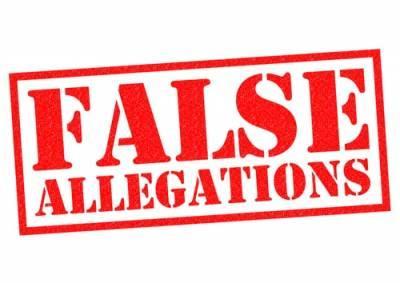 Being accused of a sex crime is one of the most serious allegations a person can face. Even before a case reaches court, the accusation alone can affect reputation, employment, family relationships, and mental health. These cases often move fast and can be devastating from the start. With a simple accusation, false or not, you can become a statistic in the annual Criminal Victimization report, which tracks detailed data on rape and sexual assault, including incidents that are reported and those that are not.
Being accused of a sex crime is one of the most serious allegations a person can face. Even before a case reaches court, the accusation alone can affect reputation, employment, family relationships, and mental health. These cases often move fast and can be devastating from the start. With a simple accusation, false or not, you can become a statistic in the annual Criminal Victimization report, which tracks detailed data on rape and sexual assault, including incidents that are reported and those that are not.
If you are facing this type of allegation in 2026, speaking with our Salt Lake City, UT sex crimes defense lawyers as early as possible can help protect your rights and preserve important evidence.
Why Would Someone Make a False Sex Crime Accusation?
There is no single reason why false accusations happen. In many cases, strong emotions or outside pressure play a role. Common reasons may include:
What You Need to Know About Protective Orders in Utah
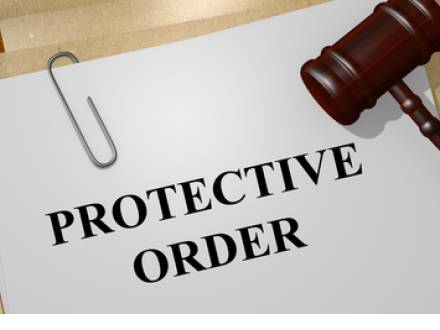 In Utah, law enforcement officials and courts are concerned about the risks that people may face due to domestic violence. Statistics show that around one in three Utah women will experience some form of physical violence, sexual violence, or stalking in their lifetime. There are more than 12,000 domestic violence incidents reported each year in the state. The Salt Lake County District Attorney’s office has reported that between January 2023 and January 2025, around half of all homicides in the region were related to domestic violence.
In Utah, law enforcement officials and courts are concerned about the risks that people may face due to domestic violence. Statistics show that around one in three Utah women will experience some form of physical violence, sexual violence, or stalking in their lifetime. There are more than 12,000 domestic violence incidents reported each year in the state. The Salt Lake County District Attorney’s office has reported that between January 2023 and January 2025, around half of all homicides in the region were related to domestic violence.
These statistics have led to an increased use of protective orders, which are meant to address potential violence between intimate partners, family members, or other people in close relationships. A protective order will restrict contact between an alleged abuser and an alleged victim, and it may include other terms that limit where a person can go and what they can do.
Utah Sexual Exploitation Charges for Smart-Home Exposure
 Smart-home technology and devices were meant to make life easier. But what happens when a device captures something it was not meant to? Accidental footage on a Ring or Blink camera, a baby monitor, a smart doorbell system, or even a hacked home system can become the basis for a sexual exploitation charge.
Smart-home technology and devices were meant to make life easier. But what happens when a device captures something it was not meant to? Accidental footage on a Ring or Blink camera, a baby monitor, a smart doorbell system, or even a hacked home system can become the basis for a sexual exploitation charge.
This is true even when the exposure was entirely accidental in nature and likely recorded without the homeowner’s knowledge. Prosecutors will argue that the images or videos captured by smart technology devices meet Utah’s strict definitions of sexual exploitation. Defendants can be shocked to face a serious felony based on a few seconds of unintended footage with no context.
If you are facing sexual exploitation charges (Title 76, Chapter 5b of the Utah Code), based on accidental behavior or total lack of intent, your normal family life could be turned upside down as you face serious felony charges. A knowledgeable Davis County, UT criminal defense attorney can immediately begin investigating the charges and building a solid defense on your behalf.
Can You Get a Day-After DUI in Utah? What Drivers Must Know
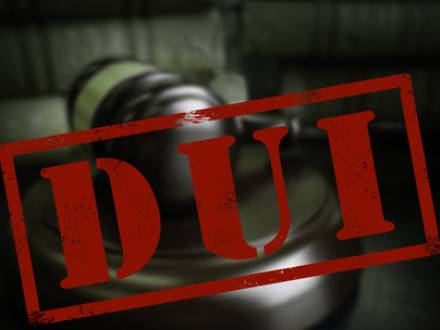 If you are a Utah driver, you likely assume that once you stop drinking and have slept, you are safe to drive the next morning. Unfortunately, this is not always the case. Utah’s strict 0.05 percent DUI BAC limit is the lowest in the nation, meaning drivers can still be legally impaired long after the alcohol has "worn off." This can lead to a surprising scenario known as a day-after DUI.
If you are a Utah driver, you likely assume that once you stop drinking and have slept, you are safe to drive the next morning. Unfortunately, this is not always the case. Utah’s strict 0.05 percent DUI BAC limit is the lowest in the nation, meaning drivers can still be legally impaired long after the alcohol has "worn off." This can lead to a surprising scenario known as a day-after DUI.
This occurs when a driver is arrested and charged with DUI hours after his or her last drink, often on the way to work. Knowing how a day after DUI can occur and what defenses are available is crucial for anyone facing a morning-after arrest. A knowledgeable Davis County, UT DUI lawyer can zealously defend your rights and your future if you have been charged with a day-after DUI.
Why is Utah Especially Prone to Day-After DUIs?
Utah’s strict 0.05 percent BAC threshold makes it even more likely that a person could test at this level the morning after than in states with a 0.08 percent BAC threshold. The enhanced impairment standards in Utah, including metabolite and unsafe operation laws, criminalize driving with any measurable amount of a controlled substance or its metabolite in the body.
How Brady Violations Can Overturn a Utah Drug Conviction
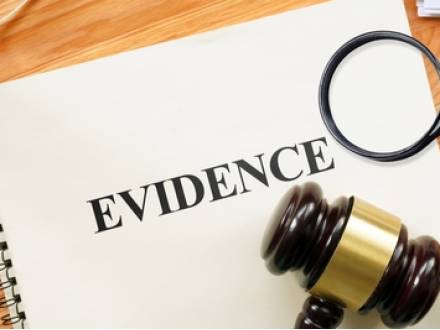 Every defendant has a constitutional right to see evidence that could help their case; yet, in some instances, that right may be quietly violated. In Utah drug prosecutions, hidden lab data, unreported informant deals, or withheld officer misconduct files could potentially alter the outcome of a drug crime trial.
Every defendant has a constitutional right to see evidence that could help their case; yet, in some instances, that right may be quietly violated. In Utah drug prosecutions, hidden lab data, unreported informant deals, or withheld officer misconduct files could potentially alter the outcome of a drug crime trial.
When the prosecution fails to provide favorable (to the defendant) evidence to the defense, it can undermine the fairness of the entire proceeding. These violations are known as Brady violations, named after the Supreme Court case Brady v. Maryland. A skilled Davis County, UT criminal defense lawyer can investigate whether a Brady violation occurred and petition for a dismissal or a new trial.
Why Are Brady Violations More Likely in Drug Cases Than Other Cases?
The very nature of drug prosecutions creates conditions that make Brady violations more common and more significant. Some of the reasons Brady violations may be more common in drug cases include:
Digital Blackmail and Sextortion Charges in Utah Explained
 Utah prosecutors are increasingly charging "sextortion" – the act of threatening to release intimate photos or videos unless a victim complies with demands – under overlapping laws. What begins as a private, online exchange can quickly escalate into serious felony allegations involving sexual extortion, coercion, and computer crimes.
Utah prosecutors are increasingly charging "sextortion" – the act of threatening to release intimate photos or videos unless a victim complies with demands – under overlapping laws. What begins as a private, online exchange can quickly escalate into serious felony allegations involving sexual extortion, coercion, and computer crimes.
Amendments to Utah Code Section 76-5b-204 recognize "digital control" as a form of abuse, treating online threats as psychological domination. If you are being charged with one or more of these crimes, you must understand how they are investigated and prosecuted. Consulting a Davis County, UT criminal defense lawyer provides you with a vigorous defense and the likelihood of the best possible outcome.
What Is Sextortion Under Utah Law?
When one person threatens to publish or distribute a sexually explicit image or video of another person without consent, this is classified as sextortion. To prove the elements of the crime, there must have been a threat to distribute an image, the intent to obtain something of value or cause harm, and a lack of consent from the person in the image. In most cases, sextortion in Utah is classified as a third-degree felony.
Utah Upskirting Laws: What Defendants Need to Know
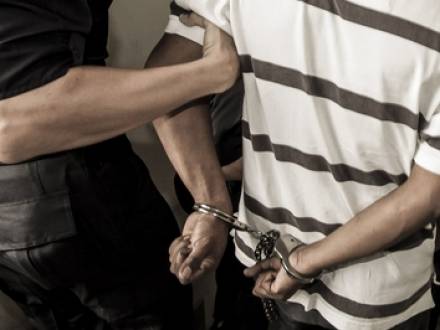 Many people may not have even heard of the term "upskirting" (which basically means photographing or recording under someone’s clothing without that person’s consent. Utah prosecutes these crimes under its voyeurism statute (Utah Code Section 76-9-702.7).
Many people may not have even heard of the term "upskirting" (which basically means photographing or recording under someone’s clothing without that person’s consent. Utah prosecutes these crimes under its voyeurism statute (Utah Code Section 76-9-702.7).
The state of Utah takes hidden camera and upskirting cases very seriously, treating them as invasive crimes that violate another person’s privacy. In Utah, secretly recording someone without consent where there is a reasonable expectation of privacy can result in severe criminal charges.
Upskirting in particular can potentially be a felony offense, requiring sex offender registration and long-term consequences. If you are facing these types of charges, it is essential that you speak to a knowledgeable Salt Lake City, UT criminal defense lawyer as quickly as possible. The sooner your attorney can start building a solid defense on your behalf, the better the outcome you are likely to have.
Caught with Fentanyl in Utah? Here’s What You’re Facing
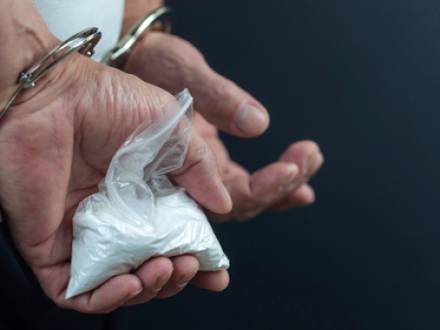 Law enforcement in Utah recently seized more than 100,000 fentanyl pills (approximately 9,500 grams) from two 19-year-olds, now charged with federal drug crimes. The Davis Metro Narcotics Strike Force had been working with the FBI since May 2025. A search warrant was obtained earlier this month, and when executed, the fentanyl pills were discovered.
Law enforcement in Utah recently seized more than 100,000 fentanyl pills (approximately 9,500 grams) from two 19-year-olds, now charged with federal drug crimes. The Davis Metro Narcotics Strike Force had been working with the FBI since May 2025. A search warrant was obtained earlier this month, and when executed, the fentanyl pills were discovered.
The charge is possession of fentanyl with intent to distribute. If convicted, this federal offense, under Title 21 of the U.S. Code, Section 841(a)(1), has federal penalties of ten years to life in prison, and a maximum fine of $10 million.
Utah charges the crime as a second-degree felony, with a prison sentence of up to 15 years and fines of up to $10,000. Like most of the country, Utah has seen a dramatic rise in fentanyl-related arrests and prosecutions. Fentanyl is a highly potent opioid – up to 50 times stronger than heroin.

 385-777-2753
385-777-2753
